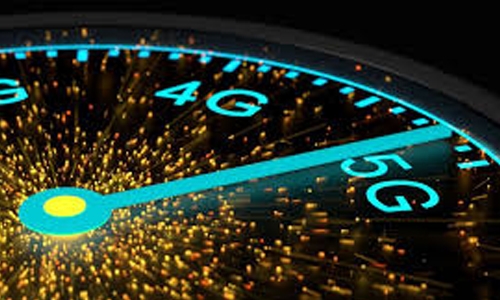1,2,3,4,5G
When Neil Armstrong made that small step back in 1969 to the surface of Moon, it was, as he famously said, was “one giant leap for mankind.” Now after 50 years, human space exploration is still going on developing new hardware and skill that would eventually take him farther from Earth than ever before to the Red Planet. NASA says it wants humans to reach Mars by 2033, the next giant leap. But, as they say, giant leaps are built on a series of small steps.
One such small step, that would eventually change the day-to-day lives of billions of people on our little Earth, is happening right now among us. In fact, as you read this, it has already happened. The world calls it by the name 5G. Yes, 5G has made its first baby steps yesterday two days earlier than expected in South Korea, which has also made superpowers crazy and sparring for control. Three top telecom providers -- SK Telecom, KT, and LG Uplus -- began their 5G services at 11 pm local time Wednesday, despite previously announcing the launch date would be April 5.
The celebrities -- including two members of K-pop band EXO and Olympic ice-skating hero Kim Yu-na -- were “the world’s first 5G smartphone subscribers”, SK Telecom said. Both KT and LG Uplus said they also went live at the same time For general customers, the services will be available from Friday -- the previous launch date -- when Samsung Electronics rolls out the Galaxy S10 5G, the world’s first available smartphone using the technology.
Meanwhile, Verizon also began rolling out its 5G services in Chicago and Minneapolis on Wednesday US time, a week ahead of schedule. However, according to Yonhap, the South Korean launches came two hours earlier.
But what’s all the fuss about?
Why are people so excited? Is it worth our time? Of course, it is, as it is not just about how faster it connects one to the internet to download movies. Experts say it promises to connect everything around us to a network that is 100 times faster than our cellular connection and 10 times faster than our speediest home broadband service. The superfast communications heralded by fifth-generation wireless technology could ultimately underpin everything from toasters to telephones; from electric cars to power grids. The system will bring smartphones near-instantaneous connectivity -- 20 times faster than existing 4G -- allowing users to download entire movies in less than a second.
Beyond speed, the biggest benefit of 5G is its low latency or short lag time. Meaning a surgeon may not be needed in the same room as a patient in the future. As Ericsson had demonstrated at King’s College London using a dummy patient, surgeons can perform an actual operation in another location without actually being there. It’s all in the words of Ericsson Chief Technology officer Ulf Ewaldon.
“It’s the first time the network will be faster than your mind.” That makes it a vital part of the infrastructure of tomorrow, and the 5G standard is expected to bring about $565 billion in global economic benefits by 2034, according to the London-based Global System for Mobile Communications, an industry alliance. However, until now, no mobile networks have offered nationwide 5G access. Bahrain held its trials in 2018.
In the US, hotspots in a few selected cities have offered 5G speeds but over wifi only, while Qatari firm Ooredoo says it offers 5G services in and around Doha -- but does not have devices available to use them. But don’t think that the South has won the race. It is only one part of the wider battle that would soon sink the world.
Related Posts

